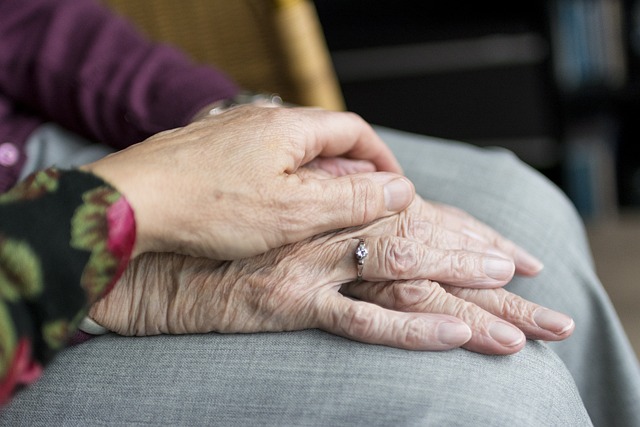Grandparent visitation rights in Oregon are protected under family law, with Marion County offering crucial support through advocacy groups providing legal representation. These advocates help navigate complex court processes, ensuring fair outcomes and protecting grandparent rights during custody disputes, especially when based on the child's best interests. In Marion County, grandparents face challenges advocating for their involvement due to emotional hurdles and legal complexities, but with pro bono services and specialized lawyers, they can protect their bond with grandchildren. Oregon family law recognizes the significant role of grandparents and works to preserve these relationships.
Grandparent rights, particularly in relation to visitation and custody, are an essential yet often overlooked aspect of family dynamics. In many cases, grandparents play a significant role in their grandchildren’s lives, providing love, support, and stability. This article explores the intricate world of grandparent visitation rights and family law for grandparents, focusing on Oregon’s legal landscape. We delve into Marion County advocacy efforts, grandparent custody disputes, and practical strategies for ensuring these vital connections are protected.
- Understanding Grandparent Visitation Rights: A Legal Perspective
- The Role of Family Law in Grandparent Custody Disputes
- Navigating Oregon's Family Law: Focus on Grandparents' Rights
- Marion County Advocacy for Grandparent Legal Representation
- Common Challenges Faced by Grandparents in Custody Cases
- Strategies and Resources for Grandparents Seeking Justice
Understanding Grandparent Visitation Rights: A Legal Perspective

In many cases, grandparent visitation rights are a vital aspect of family law, especially when grandparent custody disputes arise. These rights allow grandparents to maintain a meaningful relationship with their grandchildren despite the potential absence of physical custody. Oregon family law recognizes and respects these rights, ensuring that grandparents have legal avenues to seek visitation or even custody if it’s in the best interest of the child.
Marion County advocacy groups play a crucial role in supporting grandparents facing custody disputes. They offer grandparent legal representation, guiding them through the complexities of family court proceedings. These advocates ensure that their clients’ rights are protected and that they have access to the necessary resources, ultimately promoting fair outcomes for all parties involved.
The Role of Family Law in Grandparent Custody Disputes

In many cases, when a couple divorces or separates, grandparents face an uphill battle to maintain their visitation rights and involvement in their grandchildren’s lives. This is where Oregon family law comes into play, offering a framework to address grandparent custody disputes. The state recognizes the significant role grandparents often play in a child’s life and has established legal avenues for them to seek custody or enhanced visitation rights.
Marion County, with its robust advocacy system, provides resources and support for grandparents seeking legal representation. Grandparents can navigate the complex family court system by consulting lawyers specializing in Oregon family law. These legal professionals can guide them through the processes of filing petitions, attending hearings, and presenting their case to ensure their rights are protected and their bond with their grandchildren is preserved.
Navigating Oregon's Family Law: Focus on Grandparents' Rights

In Oregon, navigating family law can be complex, especially when it comes to grandparent visitation rights and custody disputes. The state’s laws aim to balance the interests of all family members while ensuring the best outcomes for children. Grandparents seeking legal representation in Marion County or across Oregon often face challenging situations where their relationships with grandchildren are at stake. Understanding the framework provided by Oregon family law is crucial for advocating on behalf of grandparents’ rights, especially when aiming to establish or maintain meaningful visitation and custody.
Family law professionals play a vital role in guiding grandparents through these processes, ensuring they are aware of their legal options. Whether it’s petitioning for grandparent visitation, contesting custody arrangements, or supporting modification requests, having qualified legal representation can significantly impact the outcome of grandparent custody disputes. Oregon’s family law system recognizes the significant contribution grandparents can make to a child’s life and strives to protect these relationships when possible.
Marion County Advocacy for Grandparent Legal Representation

In Marion County, advocating for grandparent rights has become a pressing issue within the family court system. Many grandparents find themselves facing challenging custody disputes, often seeking nothing more than reasonable grandparent visitation rights. The complexity of Oregon family law can be daunting, making it crucial for these individuals to have access to competent legal representation. Grandparent legal representation ensures that their concerns and desires for maintaining a significant role in their grandchildren’s lives are heard and considered.
Advocacy groups and legal aid organizations in Marion County are actively working to bridge this gap by providing pro bono services or sliding-scale fees for grandparents who cannot afford private attorneys. These efforts aim to empower grandparents to navigate the intricate web of family law, ensuring their rights are protected during custody disputes. By fostering a robust network of grandparent advocacy, Marion County is taking significant steps towards recognizing and upholding the vital bond between grandparents and their grandchildren.
Common Challenges Faced by Grandparents in Custody Cases

Grandparents often face significant challenges when advocating for their visitation rights and involvement in their grandchildren’s lives. In Marion County, as in many places, family law courts prioritize the well-being and best interests of the child, which can sometimes inadvertently limit grandparent involvement. Common hurdles include proving their capacity to provide a stable and nurturing environment, especially if they are not the primary caregivers. Grandparent visitation rights are not automatically granted, and establishing legal representation is crucial in navigating Oregon’s family law system to ensure their voices are heard during custody disputes.
Another challenge arises from the emotional aspect of these cases. Grandparents may struggle to demonstrate their bond with their grandchildren without appearing as intruding or competing with the parents’ authority. Marion County advocacy groups help grandparents navigate these complexities, ensuring their legal rights are protected while also fostering a healthy parent-grandparent-child relationship. This support is essential in grandparent custody disputes, where emotions can run high and legal guidance is indispensable.
Strategies and Resources for Grandparents Seeking Justice

Grandparents seeking justice in family court often face complex and emotional challenges. One of the first steps is to educate themselves about Oregon family law regarding grandparent visitation rights. Many resources are available, including local support groups and legal aid organizations that specialize in grandparent custody disputes. These groups can provide guidance on navigating Marion County advocacy and offer valuable insights into successful strategies for presenting a compelling case.
Seeking professional legal representation is crucial when dealing with grandparent custody disputes. Experienced attorneys specializing in Oregon family law can ensure your rights are protected and help you understand the legal process. They can assist in gathering relevant evidence, preparing necessary documents, and representing your interests effectively in court. This support increases the chances of a favorable outcome, ensuring grandparent visitation rights or, if applicable, custody arrangements that prioritize the best interests of the child while maintaining the grandchild-grandparent bond.






